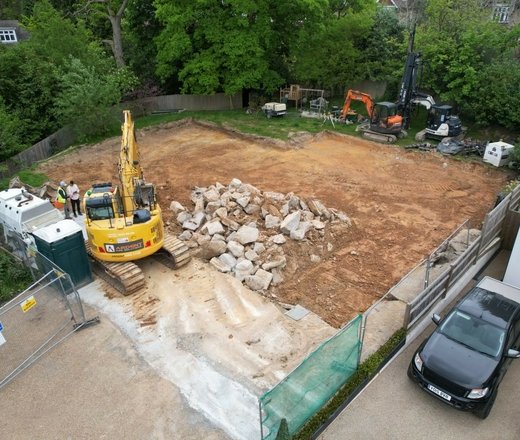In a continuing attempt to reduce inflation, the UK's central bank increased base rates for the 12th consecutive month in May 2023, raising them from 4.25 per cent to 4.5 per cent. So, what does this mean for the UK property market and will there be big implications for mortgages? Read on as we help to explain answers to these pressing issues …
How does raising interest rates help combat inflation?
The base rate has been increased from 0.1 per cent in December 2021 to its current level of 4.5 per cent in May 2023, in an attempt to tackle the rising cost of living in the UK. Despite falling in April, inflation remains stubbornly high at 8.7 per cent, so the Bank of England has been raising rates in attempt to bring it back down to its 2 per cent target.
The latest rate hike makes the cost of paying back mortgages, other loans and credit cards more expensive, but on the up side, it will also mean people should get a better return on any savings. In theory, this puts people off spending and encourages them to save instead. With less demand for goods and services, prices should fall due to a slowing of the economy and inflation should start to go down.
What does the base rate increase mean for my current mortgage?
Changes to the Bank of England’s base rate can impact how much interest you will pay on loans, including mortgages. If you are on a fixed-rate deal, your monthly payments will not change until the end of your term. However, if you are on a variable or tracker mortgage, or have a fixed rate nearing expiry, your payments will almost certainly increase.
Compared with pre-December 2021, average tracker mortgage customers will be paying about £417 more per month, and variable rate mortgage holders about £266 more per month. Forecasts suggest that these mortgage rates could start to come down again as the year goes on, but there remains a significant degree of uncertainty about that.
House buyers or anyone seeking to remortgage, will have to pay a lot more now than if they had taken out the same mortgage a year or more ago. So, it is clear to see that for some house owners, landlords and buyers the rate rises have had a negative impact.
How will base rate increases impact the UK housing market?
According to Halifax, UK house prices fell by 1 per cent in the year to May 2023, marking the first decline of this kind since 2012. Average house prices were £3,000 lower than the previous year, and £7,500 below their peak in August 2022. More bearish economists forecast a slowdown of up to 20 per cent this year due to people being able to borrow less and first-time buyers deciding to wait before securing a mortgage, to see what happens with mortgage rates.
For tenants, figures show the cost of living is fuelling rent increases, especially in major cities. Property portal Rightmove said city rental prices listed by landlords were up 12 per cent last year and tenant demand is high. It predicts that asking rents across Britain will rise a further 5 per cent through 2023 because of the ongoing imbalance between the number of those looking to rent and the number of rental properties available.
There is no doubt that the increases have sent ripples through the property market and uncertainty for what is due to happen in the short term. However, at Maddisons we are finding that many still want to press on with their home moving plans and are simply factoring a higher mortgage cost into their calculations. Mortgages do remain at a low rate, but sadly we have all become used to ridiculously low rates! Inflation should start to fall back as the energy prices reduce, so there is certainly light at the end of the tunnel!
If you are looking to buy, sell or rent a property or would like more information on this subject, please contact us. We would be delighted to help give you our expert advice on the local property market in an around Tunbridge Wells.
Market your property with Maddisons Residential
For many, the first point in their house moving journey, is to understand the value of their current home. Whether you want a quick, instant, online indication, or a more robust property specific and individual valuation, we would be delighted to help.





